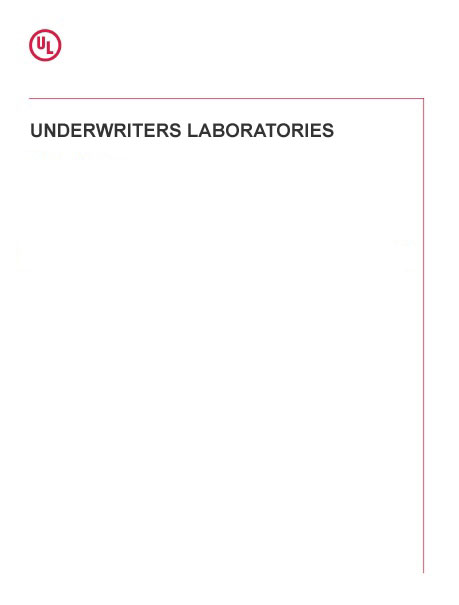
Click here to purchase
Please note: All interim revisions for this edition available at time of your purchase will be included.
Valves for Diesel Fuel, Biodiesel Fuel, Diesel/Biodiesel Blends with Nominal Biodiesel Concentrations up to 20 Percent (B20), Kerosene, and Fuel Oil
UL 842B
1 Scope
1.1 These requirements cover valves that are intended to be used for the control of fluids and their vapors for the fluids indicated in 1.2. They are of the type commonly used in piping systems and in the assembly of motor fuel dispensing equipment. Valves covered by this standard are for use with flammable fluids which are handled at temperatures normally within the range of minus 29°C (minus 20°F) to 52°C (125°F).
1.2 Valves covered by these requirements are intended for use with one or more of the following as applicable:
- a) Diesel fuel and diesel/biodiesel blends with nominal biodiesel concentrations up to 5 percent (B0 – B5) formulated in accordance with the Standard Specification for Diesel Fuel Oils, ASTM D975;
- b) Diesel /biodiesel blends with nominal biodiesel concentrations from 5 percent up to 20 percent (B6 – B20) formulated in accordance with the Standard Specification for Diesel Fuel Oil, Biodiesel Blends (B6 – B20), ASTM D7467;
- c) Biodiesel (B99.9/B100) formulated in accordance with the Standard Specification for Biodiesel Fuel Blend Stock (B100) for Middle Distillate Fuels, ASTM D6751;
- d) Kerosene formulated in accordance with the Standard Specification for Kerosine, ANSI/ASTM D3699; or
- e) Fuel oil (heating oil) formulated in accordance with the Standard Specification for Fuel Oils, ASTM D396.
1.3 These requirements cover valves of the manually operated, pressure operated, or temperature operated types, or combinations of such to the exclusion of types operated wholly or partially by electricity. When they form a part of an assembly which provides for additional functions or service, the requirements are outside the scope of these requirements.
1.4 These requirements do not cover the following:
- a) Valves for handling liquids under cryogenic conditions.
- b) Valves for general refinery service, offshore and pipe line terminals, natural gas processing plants, gas distribution systems, petrochemical processing facilities, or the like.
- c) Constant-level oil valves and electrically operated valves.
- d) Relief valves and pressure regulators for liquefied petroleum gas (LP-Gas) service.
- e) Shutoff, emergency shutoff and check valves for liquefied petroleum gas (LP-Gas) in the liquid phase.
- f) Manually operated gas valves of the plug and body or rotating disc type which are evaluated under the Standard for Manually Operated Gas Valves for Appliances, Appliance Connector Valves and Hose End Valves, ANSI Z21.15.
- g) Valves covered by the Standard for Gas Appliance Pressure Regulators, ANSI Z21.18; the Standard for Automatic Valves for Gas Appliances, ANSI Z21.21; or the Standard for Gas Appliance Thermostats,ANSI Z21.23.
- h) Hose nozzles.
- i) Valves covered by the Standard for Manually Operated Metallic Gas Valves for Use in Gas Piping Systems up to 125 PSI (Sizes NPS 1/2 through NPS 2), ANSI/ASME B16.33 and Manually Operated Metallic Gas Valves for Use in Aboveground Piping Systems up to 5 PSI, ANSI/ASME B16.44.
- j) Manually operated valves for LP-Gas, which are covered under the Standard for Valves for Flammable Fluids, UL 842.
- k) Valves intended for use with gasoline or gasoline/ethanol blends, which are covered under the Standard for Valves for Gasoline and Gasoline/Ethanol Blends with Nominal Ethanol Concentrations up to 85 Percent (E0 – E85), UL 842A.
Product Details
- Edition:
- 1
- Published:
- 02/18/2015